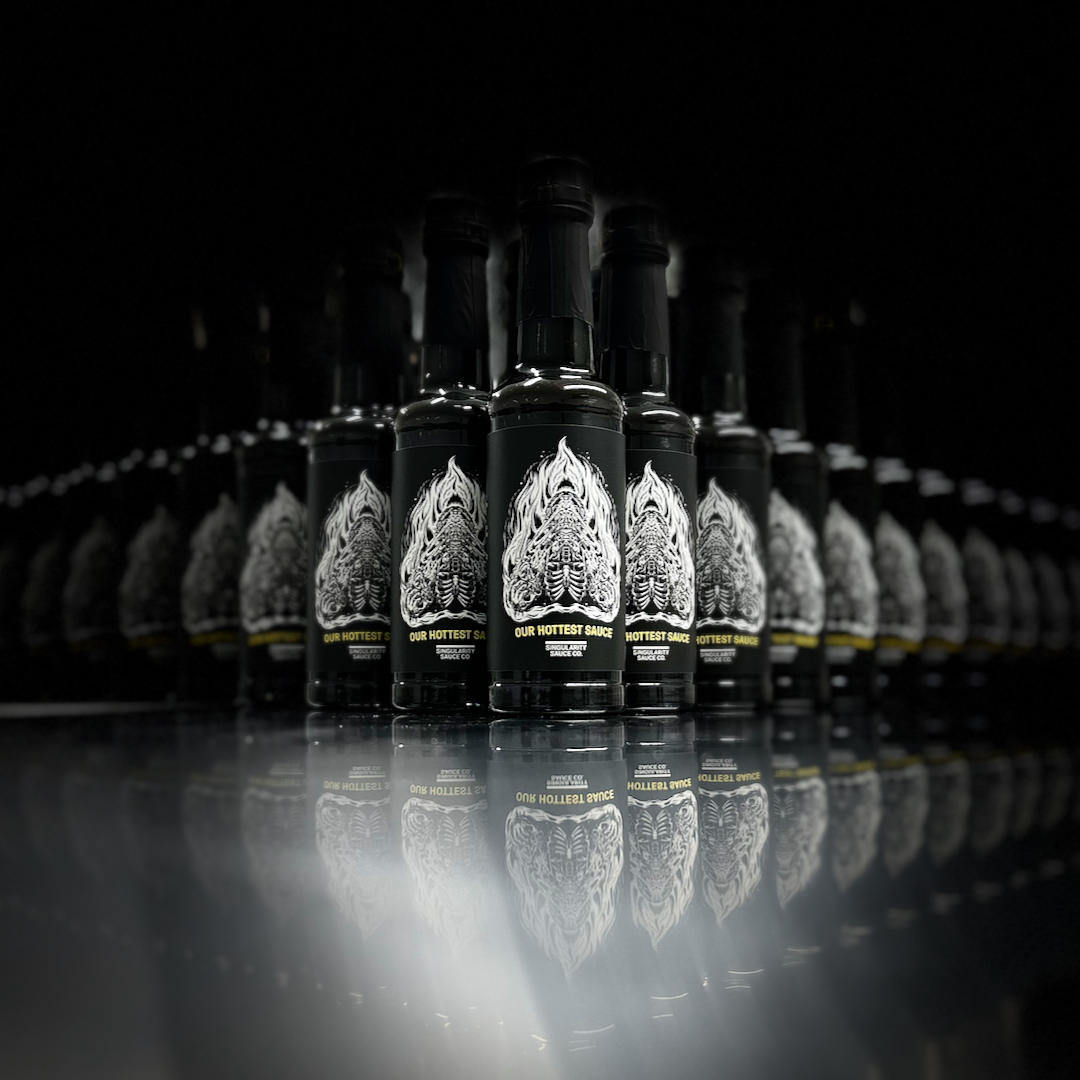
Scoville Rating of Singularity Sauce?
We’ve put together a series covering the top 5 questions asked of us. Others might have rolled out a FAQ section for this. We’re built differently. Let’s get on with it.
At number 5 is:
What is the Scoville rating of singularity sauce?
The now common request for SHU is buoyed by the ever growing popularity of Hot Ones on YouTube of course. It's difficult not to agree that Scoville units on hot sauce makes for exciting viewing. As a consequence of this popularity, we hear from more people now asking for SHU values for our hot sauces. So we thought we'd post our thoughts.
Funny thing is, we had a sauce on Hot Ones once and there were no SHU units listed for any of the special UK lineup that day.
Firstly, the Scoville numbers themselves. To understand what those numbers mean, you have to learn what Scoville Heat Units (SHU) are. Learning how they are determined is the next step. Google is your friend there ;)
In short, you probably won't see Scoville heat units for singularity sauce. We know how much heat changes from batch to batch. This change is inherent from the chillies themselves. Fruits from the same crop and even from the same plant vary in heat. This should clarify why you often see a range next to a type of chilli pepper rather than a definitive value. Let’s pull the example of one of our favourites, the Moruga Scorpion, which has a range of 1,200,000 to 2,000,000 SHU. That’s quite a range covering a difference of 800,000 SHU.

To measure a sauce rather than an individual chilli, there is more to consider. All the additional ingredients of the sauce come in to play also. We’ll need a scientist to let us know what that means for the process and the outcomes. Maybe it makes no difference when measuring the capsaicin content itself. We’re no scientists.
We do know we can’t put a definitive figure on our sauces without lab testing every batch we make. That would take significant time and great expense. We would also need new labels for every batch or at least, the means to stamp the Scoville rating on to the label. That’s just not practical, or affordable for us, or any small producer. We don't see the big guys doing this either, which gives an indication of how impractical it is.
What about an average rating then? Or a range like that Moruga Scorpion has? If we did have a chemistry lab and some scientists available, we could do some sciencing. We could test a large number of batches over time and determine an average and a range. We can’t imagine how much all that lab time would cost though. An average rating or a range wouldn’t be any more accurate than the x/5 rating we currently apply. So we’ll save ourselves that considerable lab expense and count this out for now too.
Let's end with a sensible alternative then. The best way of finding out how a sauce might make you feel in terms of heat and flavour (remember flavour? Or were you all in a fluster about Scoville units?). Take a look at the ingredients and see how the sauce is put together. Ingredients are always listed highest to lowest quantity. So if you see the chilli’s near the top of the list, you know it’s going to be pepper forward. The type(s) of chillies used will indicate how hot the sauce will be. This is the way we determine the attributes of a hot sauce. After all, we’re not producing a bottle of heat. The heat is part of the overall experience.
There is more goes into Singularity sauce than a Scoville number can communicate. We know we're not alone in seeking a great overall experience when picking out a hot sauce. That's why we're not going to get hung up on SHU any time soon. If you're after well made, small batch, craft hot sauce with , maybe don’t need to either?








